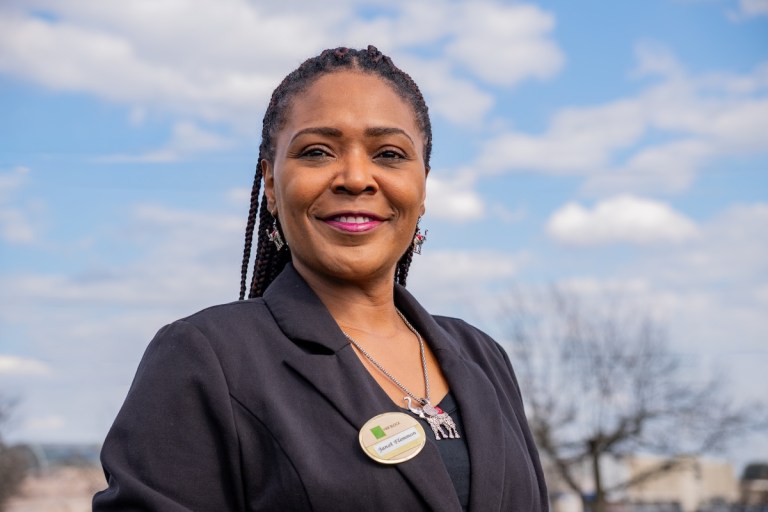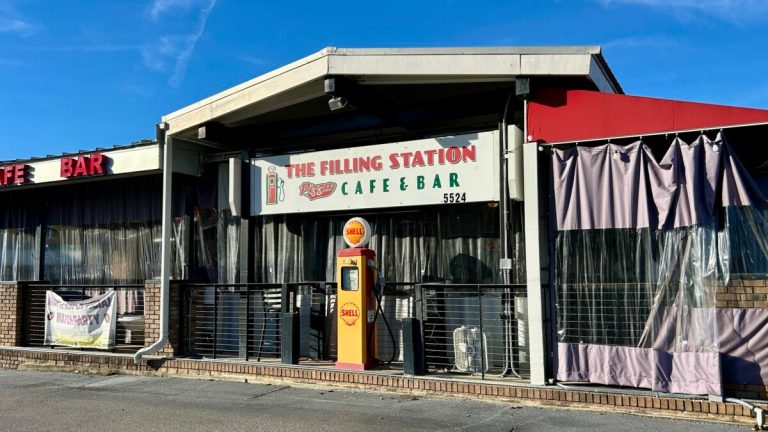State health officials share COVID-19 updates, including Thanksgiving plans + vaccine information
Reading time: 5 minutes

During a press conference today, November 23, 2020, State Health Officer Dr. Scott Harris and Chief Medical Officer Dr. Mary McIntyre shared updates on COVID-19 in Alabama. They discussed rising numbers and safety practices as we move into the holidays, along with a rough timeline for when the first round of vaccines will be administered.
Let’s start with how our state’s numbers look

You already know the answer—dismal. Dr. Harris reports Alabama is seeing thousands of new cases each day. This is unsurprising considering the U.S. saw one million COVID-19 cases in the past week alone.
“Please be careful, please be safe…you’re not going to get another chance to do this over.”
Dr. Scott Harris, State Health Officer, Alabama Department of Public Health
Who’s infected?
Over 230,000 Alabamians have been affected by COVID-19 so far. Hospitalization numbers are up with officials reporting some of the highest cases since July.
These disheartening numbers also include deaths, which sit at 3,459 for the state as of November 23, 2020 at 12PM.
About that mortality rate…
By now, you know 1.5% of COVID-19 cases result in death. Sound like a small number? Look at it this way—if you took 1.5% of Alabama’s population, that’s 75,000 deaths.
Moreover, the mortality rate is higher for those 75+. COVID-19 positive seniors experience a 20% death rate. Both health officials during the press conferance emphasized this number is exactly why you must careful during Thanksgiving when our more vulnerable family members are present.
Thanksgiving should look different this year

“If we want to live to see another Thanksgiving, it means stepping back for this one.”
Dr. Mary McIntyre, Chief Medical Officer Dr. Mary McIntyre, Alabama Department of Public Health
During the report, Dr. McIntrye shared how, as a high-risk individual, she will be spending Thanksgiving.
She’s limited the gathering, which involves seven guests, to no more than 10 people. Four out of the 10 include immediate household members. Every guest will wear a mask until they’re separated at least six feet apart.
Dr. McIntrye will also host her family’s Thanksgiving traditions via Zoom with out-of-state members.
Safety checklist
- Bring your own food/drinks.
- Have celebrations outdoors, if possible.
- Wear a mask and stay 6 feet apart from guests.
- If sharing food, have one person serve food and use single-use options, like plastic utensils.
- Consider celebrating virtually.
Discover more tips including best holiday shopping practices from the CDC.
Thanksgiving will be the determining factor for upcoming holidays
Dr. Harris stated he was scared for what December may look like. Thanksgiving celebrations could cause a catalyst resulting in an eruption of COVID-19 cases. However, he notes, it’s not inevitable. By staying home and staying safe, catastrophe can be prevented.
On to the good news—a vaccine is coming

Dr. Harris reported encouraging vaccine news. Applications for the state’s emergency use are submitted to the FDA and Dr. Harris expects to hear good feedback regarding approval.
State health officials are working on a vaccine prioritization plan, which includes frontline health care workers and those at high risk for death and illness.
How many vaccines do we get and when?
Right now, the number of vaccines distributed in the first round from the CDC is unknown. They will be distributed on a per capita basis, with Alabama receiving an estimated 120,000 vaccines during the first round.
Nothing is set in stone, but Dr. Harris expects a solid distribution plan by December 7 and a vaccine by mid-December.
What about price and rural areas without hospitals?
The vaccines themselves will be free. However, providers can charge administration fees.
For nontraditional areas without hospitals, like rural Alabama, the state is recruiting doctors. It’s believed that pharmacies, dental offices, community health centers and those similar will be able to administer the vaccine.
One size does not fit all

Of course, there are many unknowns about the vaccine. For example, it’s unclear how many pregnant women and children were enrolled in trials, so we don’t know how effective it will be on that demographic.
Although, Dr. Harris confirmed it’s safe to think a good amount of ages and races were enrolled in vaccine trials. He noted the product should be appropriate for a wide range of people.
Decisions, decisions
Right now, all the buzz is on Pfizer’s vaccine—the one said to be 95% effective against COVID-19 beginning 28 days after the first dose. Moderna’s COVID-19 vaccine is also thought to be nearly as effective at 94.5% efficiency.
We know it will only be frontline healthcare workers and those most high risk for illness and death to receive the first round of vaccines. However, with several vaccines coming out, Dr. Harriss states it will be up to your healthcare provider which one is right for you.
More than a vaccine
In addition to the vaccine, a therapeutic antibody drug, bamlanivimab, has been distributed across local hospitals. Around 40 hospitals have placed orders for it and, according to Dr. Harris, the drug has shown positive results.
Looking for more info? Take a look at these articles
- Birmingham researchers lead the way in COVID-19 vaccine development
- COVID hospitalizations are up. What to do now to keep the people you love safe + help hospital staff



